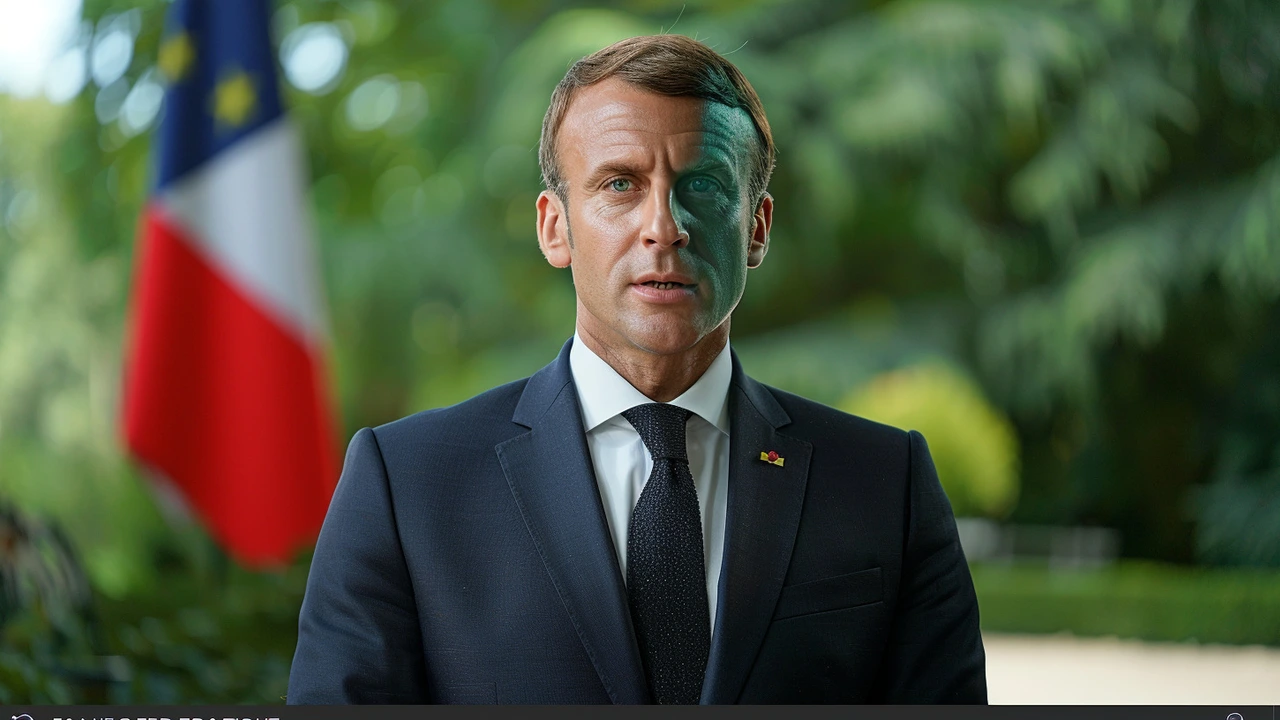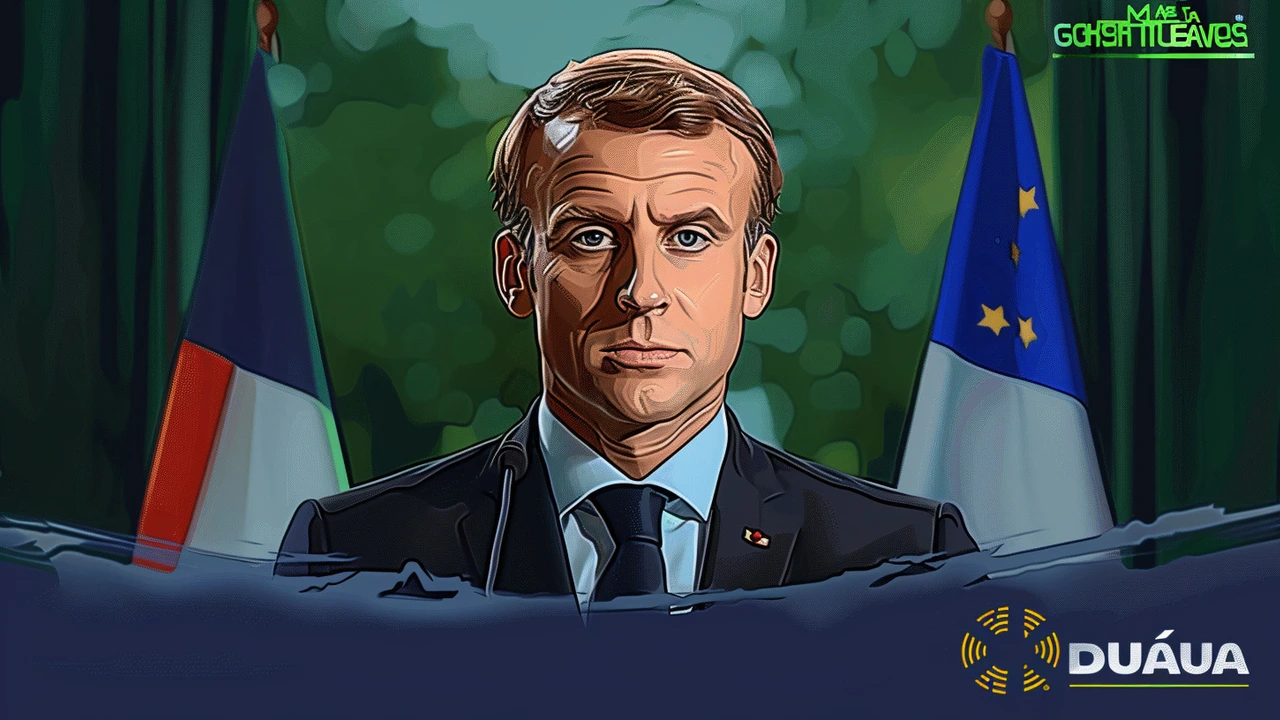
France in Election Mode: The Far-Right Resurgence
France has decisively entered an election footing in the wake of a groundbreaking success by the far-right National Rally party in the recent European Parliament elections. Under the leadership of Marine Le Pen, the party carved a significant niche, clinching 28.2% of the votes and overtaking President Emmanuel Macron's centrist coalition, which managed to secure only 22.4%. This development signals a profound shift in the French political landscape, as the National Rally establishes itself as a dominant force within the European Parliament.
Marine Le Pen's Victory: A Closer Look
The election triumph for the National Rally marks a pivotal moment for the party and its supporters. The win is not just a victory of numbers but a reflection of growing discontent among French citizens. Marine Le Pen's platform, which emphasizes nationalism and stringent immigration policies, resonated with a significant portion of the electorate. This shift indicates a widespread dissatisfaction with the current government, particularly in areas like immigration and economic policy, where many feel Macron's centrist administration has faltered.
The sentiment was especially potent among rural voters and the working-class population who feel increasingly overlooked by Macron's policies that many perceive as catering more to urban elites. The election results, therefore, are as much a statement against Macron as they are a mandate for Le Pen's hardline stance on national sovereignty and border control.
Macron's Campaign Efforts
Despite Macron's concerted efforts to rally support for his centrist alliance, including a vigorous campaign trail, the results fell short of expectations. Macron had championed a vision of progressive European integration and economic reforms, area that failed to inspire the same level of enthusiasm as Le Pen's nationalist rhetoric. His failure to secure a larger share of the vote in the European Parliament elections is a stark reminder of the challenges facing his administration.
In particular, Macron's stance on immigration and economic policies has been points of contention. Critics argue that his policies have not sufficiently addressed the pressing issues facing everyday citizens, particularly in the rural heartlands and smaller towns where support for National Rally is robust. The election outcomes can be seen as a referendum on Macron's presidency and an indicator of the political volatility ahead.
Implications for Future Elections
The impact of these European Parliament election results transcends beyond the immediate victory for the National Rally. The outcome is poised to significantly influence the political dynamics in France, especially in the lead-up to the upcoming municipal elections and potentially the 2027 presidential race. With the far-right gaining traction, other parties may need to recalibrate their strategies to address the concerns that have driven voters towards the National Rally.
Marine Le Pen has capitalized on the momentum post-victory by calling for President Macron to dissolve the National Assembly and initiate early legislative elections. Such a move would not only escalate the political tensions but could potentially realign the legislative priorities and power structures within the country.
Voter Sentiments and Key Issues
The recent election has brought to light the underlying voter sentiments that have shifted the political paradigm in France. The electorate's dissatisfaction with Macron's approach to key issues like immigration, economic inequality, and national security has been deftly exploited by Le Pen's party. Her success in positioning the National Rally as a viable alternative reflects the growing appeal of nationalist and anti-immigration rhetoric across Europe.
Many voters feel marginalized by Macron's policies and perceive a disconnect between his administration and the grassroots realities of ordinary French citizens. The National Rally's success is indicative of a wider trend where far-right parties are gaining ground by tapping into disenfranchisement and populist sentiments, promising to address issues that other mainstream parties have, according to their critics, ignored or inadequately tackled.

The Road Ahead
As France gears up for the unfolding political drama, the road ahead appears fraught with uncertainties. Marine Le Pen's call for early legislative elections is a bold move that could either consolidate her party's newfound strength or provoke a backlash from other political factions seeking to counter her influence. The upcoming municipal elections will serve as a crucial battleground where these shifting dynamics will further play out.
Analysts predict a contentious period as parties across the spectrum reevaluate their platforms and campaign strategies. The National Rally's success has set a new precedent, challenging the status quo and forcing a re-examination of the core issues that influence French voters. The debate around national identity, immigration, and economic reform is likely to intensify, with each side attempting to sway public opinion in an increasingly polarized environment.
In conclusion, the European Parliament election results have unequivocally placed France on an election footing, with everyone keenly observing how the political landscape will evolve. President Macron faces an uphill battle in reconciling his progressive agenda with the apparent surge in nationalist sentiment, while Marine Le Pen must capitalize on her momentum without alienating potential swing voters wary of the far-right's more extreme policies. One thing is certain: The next few years in French politics promise to be anything but dull.
Comments (17)
-
Jo Simpkinson June 10, 2024
Ah, the French electorate decided they needed a sprinkle of drama, and voilà, the far‑right swoops in like it owns the place.
Marine Le Pen winks at the voters, while Macron watches his centrist dreams dissolve into a baguette‑shaped fog.
-
Darrell Kuykendall June 20, 2024
Wow!!! The shift is huge!!! Folks are finally feeling heard!!! The National Rally’s surge shows that people want real change!!! Let’s hope the conversation keeps moving forward!!!
-
Nitin Jadvav June 29, 2024
Oh great, because Europe definitely needed another nationalist party.
-
Adrish Sinha July 9, 2024
It might be a rough patch, but the French people have always found a way to balance things out, and they’ll keep pushing for a better future.
-
Arun kumar Chinnadhurai July 18, 2024
Historically, France has seen similar swings; the 1995 parliamentary elections also gave a sudden boost to the far‑right, which later moderated its stance. Demographic data shows rural areas with unemployment above 12 % leaned heavily toward the National Rally. This pattern suggests economic distress, not just cultural anxiety, drives the vote.
-
Aayush Sarda July 28, 2024
While the enthusiasm expressed in the prior comment captures the public’s excitement, it is crucial to contextualize the National Rally’s parliamentary gains within the broader framework of European Union policy dynamics. The party’s 28.2 % vote share translates into a substantial bloc that can influence legislative amendments concerning migration quotas, agricultural subsidies, and fiscal harmonization. Moreover, the interplay between domestic discontent and trans‑national bargaining positions underscores the strategic calculus of both Macron’s centrist coalition and Le Pen’s nationalist platform. Consequently, stakeholders ought to monitor forthcoming coalition negotiations with heightened vigilance, as they will determine the trajectory of France’s integration agenda for the next legislative term.
-
Cheyenne Walker August 6, 2024
The recent electoral outcome undeniably reshapes the political equilibrium within the Fifth Republic. Firstly, the National Rally’s ascendancy reflects a palpable erosion of confidence in the incumbent administration’s economic stewardship. Secondly, the electorate’s appetite for stringent immigration controls signifies a deeper cultural realignment. Thirdly, Macron’s centrist platform, despite its progressive rhetoric, appears increasingly detached from the lived realities of rural constituents. Fourthly, the legislative apparatus may soon confront a clash of ideologies that could impede policy continuity. Fifthly, the European Parliament will likely experience intensified debates over sovereignty versus integration. Sixthly, fellow member states may recalibrate their diplomatic overtures toward France in light of this shift. Seventhly, the media narrative surrounding national identity will become more pronounced and contested. Eighthly, civil society organizations must brace for heightened advocacy efforts on both sides of the spectrum. Ninthly, voter turnout patterns suggest that mobilization strategies will evolve to capture the disengaged demographic. Tenthly, the upcoming municipal elections will serve as a barometer for the National Rally’s sustainability at the local level. Eleventhly, coalition-building will demand nuanced negotiations, particularly concerning fiscal policy. Twelfthly, the youth electorate, historically progressive, may either reaffirm its stance or be swayed by emerging economic concerns. Thirteenthly, the judiciary’s role in overseeing electoral disputes may gain unprecedented visibility. Fourteenthly, international observers will scrutinize France’s adherence to democratic norms amidst rising populist rhetoric. Fifteenthly, regardless of the eventual outcome, the French political landscape will remain in a state of dynamic flux, compelling all participants to adapt accordingly.
-
Carl Gough August 16, 2024
Yo, France just turned the political volume up to eleven-time to see which party can keep the beat without dropping the mic!
-
Rebecca Hayes August 25, 2024
From a systems‑thinking perspective, the current surge can be modeled as a feedback loop where policy inertia amplifies populist signals, thereby increasing volatility in the governance equilibrium.
-
Jason Underhill September 4, 2024
Looks like the far‑right just got a major boost 😂
-
Kirsten Wilson September 13, 2024
i cant help but wonder if the real election is inside each mind, where fear n hope battle like old gods in a silent arena
-
Michelle Roque September 23, 2024
The whole thing feels like a rollercoaster i guess waiting for the next twist.
-
Killian Lecrut October 2, 2024
Well, if inner gods are playing politics, I’m betting they’re also checking their phones for the latest poll results-classic multitasking.
-
Joshua Rainey October 12, 2024
Everyone’s shouting about a “Le Pen wave” as if it’s a tsunami, but let’s not forget that France has survived countless political storms without capsizing, so maybe this is just a splash.
-
Gail Robb October 21, 2024
Spare me the melodrama; this is merely the inevitable correction of an over‑extended liberal consensus that never truly resonated with the French heartbeat.
-
andy heri October 31, 2024
I see where you’re coming from, and while the drama may be overblown, it’s still important to listen to the concerns that fueled this shift, because inclusive dialogue can bridge divides.
-
Jeremy Perlman November 9, 2024
Yo, facts don’t lie!!! The numbers are crystal clear!!! 28.2 % is a massive jump!!! Anyone still denying the impact is ignoring basic electoral math!!!
